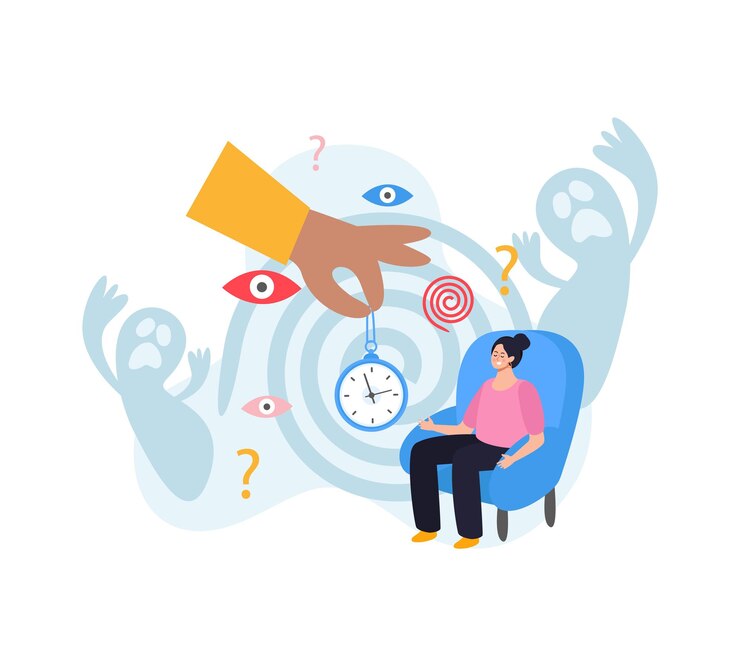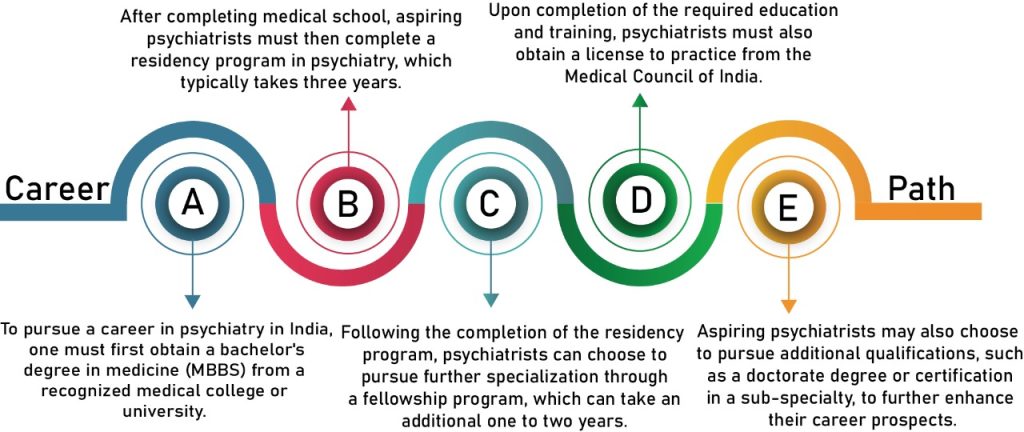Psychiatry is a branch of medicine that deals with the diagnosis, treatment, and prevention of mental illnesses and disorders. Psychiatrists are medical doctors who specialize in the field of mental health, and they are trained to use a variety of treatments, including medication, psychotherapy, and other therapeutic techniques to help individuals with mental health conditions. Psychiatry covers a wide range of conditions, including anxiety disorders, depression, bipolar disorder, schizophrenia, personality disorders, and substance abuse disorders, among others. The ultimate goal of psychiatry is to improve the mental health and quality of life of individuals, and to help them lead happy and productive lives.

Work description
Psychiatry is a branch of medicine that deals with the diagnosis, treatment, and prevention of mental illnesses and disorders. Psychiatrists are medical doctors who specialize in the field of mental health, and they are trained to use a variety of treatments, including medication, psychotherapy, and other therapeutic techniques to help individuals with mental health conditions. Psychiatry covers a wide range of conditions, including anxiety disorders, depression, bipolar disorder, schizophrenia, personality disorders, and substance abuse disorders, among others. The ultimate goal of psychiatry is to improve the mental health and quality of life of individuals, and to help them lead happy and productive lives.
High Demand
Ability to help individuals improve their mental health and quality of life.
Lucrative salaries
Opportunity to work in a variety of settings, such as hospitals, clinics, and private practices.
Opportunities for innovation
High demand for mental health professionals, leading to job stability and potentially high salaries.
Versatility
Ability to work with a diverse range of patients and conditions.
Flexibility
Potential for personal and professional growth through ongoing education and research opportunities.
Job satisfaction
The potential to specialize in areas such as sustainable design, structural engineering, or building systems design.
High stress
Potential for personal and professional growth through ongoing education and research opportunities.
Long hours
Potential for burnout due to heavy workloads and long hours.
Competitive field
High levels of responsibility, as the well-being of patients may depend on accurate diagnoses and effective treatment plans.
Constant learning
Potential for exposure to workplace violence or other safety risks in certain settings.
Isolation
Potential for exposure to workplace violence or other safety risks in certain settings.
Eye strain and other physical health issues
The potential for competition for jobs, particularly in areas with high demand for architectural engineering services.
The cost of pursuing a career in psychiatry in India can vary depending on various factors such as the type of college, duration of the course, living expenses, etc. Generally, pursuing an MBBS degree, which is the minimum requirement for becoming a psychiatrist, can cost around INR 10-30 lakhs for the entire course depending on the college and university. After completing MBBS, one needs to pursue an MD in Psychiatry, which can cost an additional INR 5-10 lakhs. In addition to tuition fees, one also needs to consider other expenses such as accommodation, food, books, and other supplies, which can add up to the investment. However, it’s important to note that scholarships, grants, and other forms of financial aid are available for students to help reduce the overall cost.
[wpcharts type=”horizontalbarchart” bgcolor=”red:gray:yellow,blue:gray:yellow,random:gray:yellow,purple:gray:yellow” min=”0″ legend=”true” titles=”2 year , 5 year” values=”3,7,5,12″]
The earning potential of a psychiatrist in India can vary widely depending on factors such as experience, location, and area of specialization. On average, a psychiatrist in India can expect to earn between INR 3,00,000 to INR 20,00,000 per year. Those working in private practices or with high-end clients may earn more than those working in government or non-profit settings. The earning potential may also increase with additional qualifications, such as a sub-specialty or a doctorate degree. However, it is important to note that the earning potential of a psychiatrist may also be affected by factors such as market demand and economic conditions, and individual results may vary.
[wpcharts type=”horizontalbarchart” bgcolor=”red:gray:yellow,blue:gray:yellow,random:gray:yellow,purple:gray:yellow” min=”0″ legend=”false” titles=”Entry-Level, Mid-Career, Senior-Level ” values=”5,15,25,35,45,55″]
Strong academic background in biology, psychology, and other related subjects.
Compassionate and empathetic nature.
Good listening and communication skills.
Ability to build rapport with patients.
Strong critical thinking and problem-solving skills.
Ability to work well under pressure and handle stressful situations.
Good time management and organizational skills.
Lack of empathy or compassion towards others.
Poor communication skills.
Inability to handle stress or pressure.
Limited ability to work well in a team.
Difficulty managing time and staying organized.
Lack of commitment or dedication to the field.
Difficulty in dealing with emotionally challenging situations.
Work-life balance
The work-life balance of a psychiatrist can vary depending on a variety of factors, such as the setting in which they work and their level of experience.
Psychiatrists who work in private practices may have more control over their schedules and workload, while those who work in hospitals or clinics may have less flexibility.
Some psychiatrists may also work long hours, particularly during periods of high demand or crisis situations. However, many psychiatrists are able to achieve a healthy work-life balance by setting boundaries, prioritizing self-care, and making time for hobbies and relationships outside of work.
It’s important for psychiatrists, like anyone in a demanding career, to take steps to manage stress and avoid burnout, such as seeking support from colleagues or a mental health professional, and practicing self-care techniques like exercise and meditation

Improved mental health and well-being of individuals and communities.
Reduction in stigma surrounding mental health issues.
Improved awareness and understanding of mental health conditions.
Improved awareness and understanding of mental health conditions.
Potential reduction in healthcare costs related to untreated or undertreated mental health conditions.
Ability to make a positive impact on the lives of patients.
Child and Adolescent Psychiatry
Focuses on the diagnosis and treatment of mental health disorders in children and adolescents.
Addiction Psychiatry
Specializes in the treatment of substance abuse disorders and addiction-related mental health issues.
Geriatric Psychiatry
Focuses on the diagnosis and treatment of mental health disorders in elderly patients.
Neuropsychiatry
Combines the fields of neurology and psychiatry to diagnose and treat disorders that affect both the brain and mental health.
Emergency Psychiatry
Deals with the evaluation and treatment of acute psychiatric emergencies, such as suicidal behavior or psychosis.
Conclusion:
In conclusion, psychiatry can be a rewarding and fulfilling career choice for those with a passion for helping others and an interest in mental health. While it requires a significant investment of time, education, and training, a career in psychiatry can offer a good salary, job security, and the opportunity to make a positive impact on the lives of patients. Like any career, psychiatry has its challenges and requires a certain set of skills and strengths, but with dedication and commitment, it can be a fulfilling and impactful profession.



